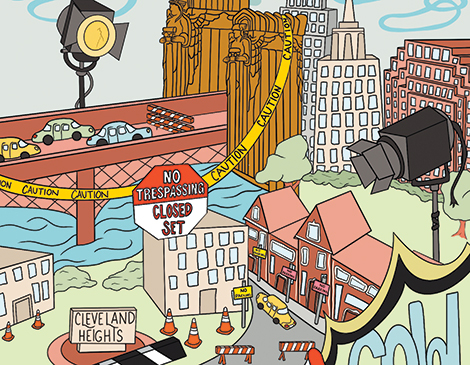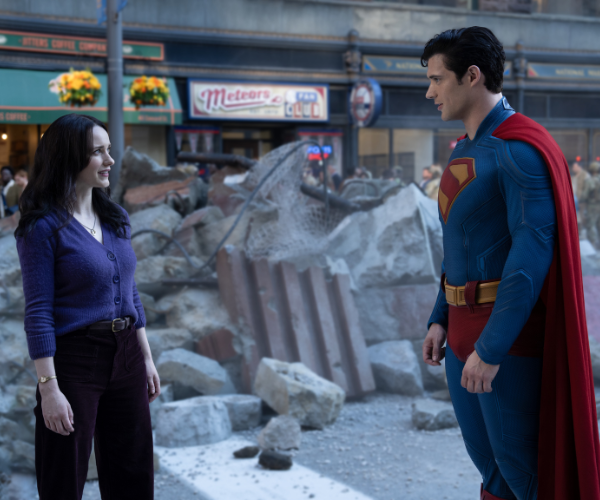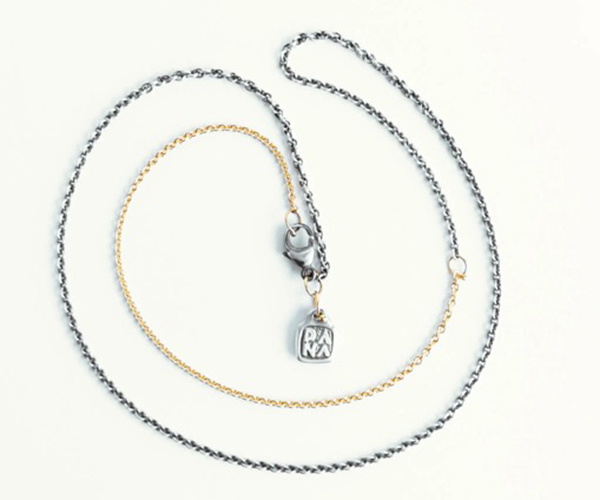Cleveland's nascent role as a film production hot spot brings with it no small amount of civic pride, with locals quick to spot familiar architectural details in Hollywood blockbusters like The Avengers or Judas and the Black Messiah. But what of the behind-the-scenes workers who make the movie magic possible?
On-set safety came into sharp focus last October after actor Alec Baldwin accidentally fatally shot his cinematographer on the set of Rust. At the same time, there’s been a push for better working conditions in general by the International Alliance of Theatrical Stage Employees.
The clear response from the local film scene is that safety is paramount on every set, particularly when firearms or explosives are involved. “That’s why the Rust story shocked me,” says Monica Plunkett, an International Alliance of Theatrical Stage Employee member who owns the Cleveland Prop Shop and has worked on multiple local films. “I’m in that department, and I’ve never seen any problems with weapon safety. I’ve always felt safe.”
Examples of on-set safety measures include locking firearms in a safe, securely transporting them in protective cases and even dispensing earplugs to crew members before any explosive scene. “Every movie set is our workplace,” says Bill Garvey, president of the Greater Cleveland Film Commission. “We’re all invested in keeping sets safe.”
While the Rust incident seems a tragic outlier for an industry vigilant about safety, there are other facets of worker
well-being that have sometimes slipped through the cracks. The film industry might sound glamorous, but Plunkett reveals the hectic reality. “You’re definitely working a 12-hour day — and probably more than that. It’s like a combination of art school, boot camp and camping. I’m climbing up and down off trucks, on the go, moving the entire time. It’s definitely not a desk job.”
Occasionally, crew members were rewarded for these long hours with quick turnarounds between shifts and limited rest on weekends. In particular, “Fraturdays” (industry parlance for long shoots that run from Friday night into early Saturday morning) left workers with little time off before reporting back to set at 6 a.m. Monday for another full week.
With schedules like that, a disconnect from life can become commonplace. “When I worked on I See You (in 2019), a lot of shooting was at night and I remember driving to set and seeing kids playing on the street and thinking to myself, Why aren’t they in school? Then I realized, Oh, it’s 4 p.m.” laughs Plunkett.
Work-life imbalance became a flashpoint in recent union negotiations, with an eleventh-hour agreement in October narrowly averting a nationwide strike. The newly ratified contract (and the Area Standards Agreement that governs Cleveland film workers) guarantees everyone at least a minimum of 54 hours of rest each weekend.
“We need work-life balance in any industry,” says Garvey. “Gains were made on behalf of crew safety and, hopefully, we’ll see the quality of work increase even beyond what it’s been.”




